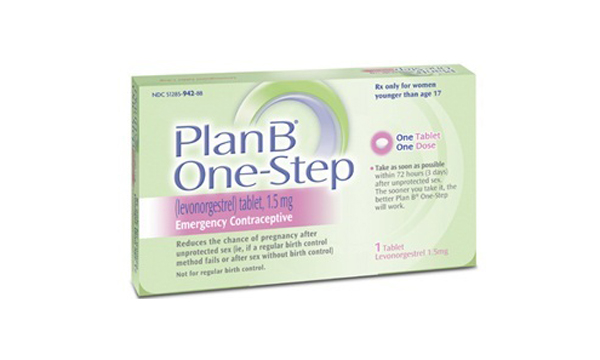Pharmacies Respond Inaccurately to Teens Seeking Contraception

Get the world’s most fascinating discoveries delivered straight to your inbox.
You are now subscribed
Your newsletter sign-up was successful
Want to add more newsletters?

Delivered Daily
Daily Newsletter
Sign up for the latest discoveries, groundbreaking research and fascinating breakthroughs that impact you and the wider world direct to your inbox.

Once a week
Life's Little Mysteries
Feed your curiosity with an exclusive mystery every week, solved with science and delivered direct to your inbox before it's seen anywhere else.

Once a week
How It Works
Sign up to our free science & technology newsletter for your weekly fix of fascinating articles, quick quizzes, amazing images, and more

Delivered daily
Space.com Newsletter
Breaking space news, the latest updates on rocket launches, skywatching events and more!

Once a month
Watch This Space
Sign up to our monthly entertainment newsletter to keep up with all our coverage of the latest sci-fi and space movies, tv shows, games and books.

Once a week
Night Sky This Week
Discover this week's must-see night sky events, moon phases, and stunning astrophotos. Sign up for our skywatching newsletter and explore the universe with us!
Join the club
Get full access to premium articles, exclusive features and a growing list of member rewards.
Pharmacies may misinform teens about whether they are allowed to buy emergency contraception, which can prevent pregnancy after sex, a new study finds.
Such misinformation is more commonly given by pharmacies in low-income neighborhoods, the study showed.
The researchers called 943 commercial pharmacies in five states. The caller posed as a 17-year-old girl seeking emergency contraception after unprotected sex. Under Food and Drug Administration rules, the emergency contraception drug called Plan B may be sold over the counter (without a prescription) to women ages 17 and older (those ages 16 and younger need a prescription).
But of the pharmacies who said they had emergency contraception available that day, 19 percent said the 17-year-old caller could not buy the emergency contraception under any circumstances. The pharmacies who responded this way usually hung up the phone quickly.
"We were really surprised that so many pharmacies actually ended the conversation at that point," said study researcher Dr. Tracey Wilkinson, a pediatrician at Boston Medical Center.
The misinformation was more common in poor neighborhoods: 23.7 percent of pharmacies in low-income neighborhoods said the teenage caller could not obtain emergency contraception at all, compared with 14.6 percent in other neighborhoods.
In addition, just under half (44 percent) of pharmacies surveyed gave the incorrect age at which a teenager can obtain emergency contraception without a prescription. Most who got it wrong said a person needed to be older than 17 to obtain emergency contraception. In low-income neighborhoods, about 50 percent of pharmacies gave the incorrect age, compared to about 37 percent in other neighborhoods.
Get the world’s most fascinating discoveries delivered straight to your inbox.
The findings suggest that access to emergency contraception is particularly difficult for young women living in low-income areas — areas that also have higher rates of teen pregnancy, Wilkinson said.
While access to Plan B isn't the only factor that affects teen pregnancy rates, "knowing that teen pregnancy rates are higher in low-income neighborhoods makes this disparity an even bigger problem," Wilkinson said.
The researchers noted their results are based on calls to pharmacies and not in-person visits, which may have yielded different responses. But adolescents may call pharmacies beforehand, and may be discouraged from going to a pharmacy in person if they receive incorrect information about emergency contraception, Wilkinson said.
Pass it on: Women ages 17 and up can buy Plan B without a prescription.
This story was provided by MyHealthNewsDaily, a sister site to LiveScience. Follow MyHealthNewsDaily staff writer Rachael Rettner on Twitter @RachaelRettner. Find us on Facebook.

Rachael is a Live Science contributor, and was a former channel editor and senior writer for Live Science between 2010 and 2022. She has a master's degree in journalism from New York University's Science, Health and Environmental Reporting Program. She also holds a B.S. in molecular biology and an M.S. in biology from the University of California, San Diego. Her work has appeared in Scienceline, The Washington Post and Scientific American.
 Live Science Plus
Live Science Plus










